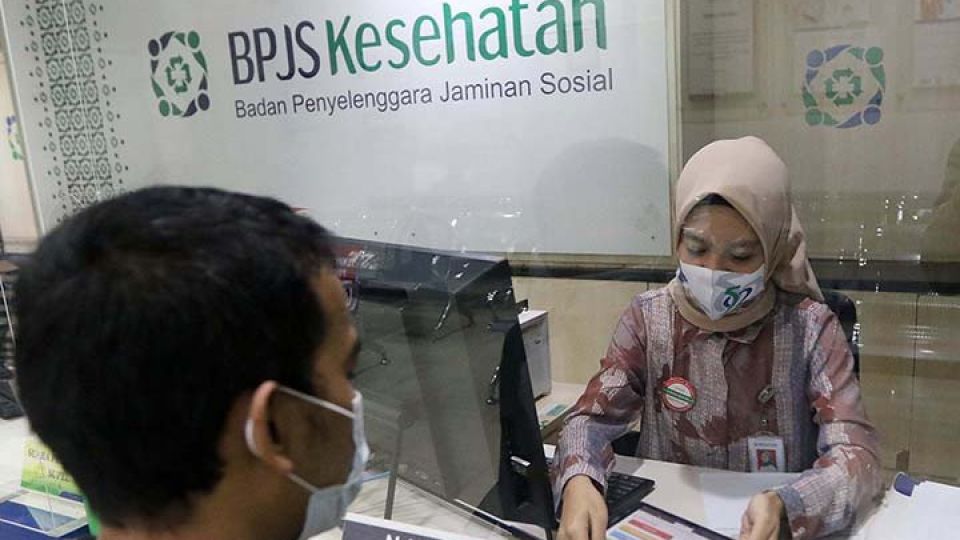January 19, 2024
JAKARTA – The Healthcare and Social Security Agency (BPJS Kesehatan) has projected a record deficit for the National Health Insurance (JKN) program this year.
A projected gap of Rp 18.9 trillion (US$1.21 billion) between its fees revenue and benefit payouts would mark the largest shortfall the agency has experienced since its inception in 2014.
While BPJS Kesehatan has pointed to substantial assets that could cover the deficit for a while, analysts suggest the agency start working on a mitigation strategy, which could involve raising fees, requesting cash injections from the government or reducing benefits for members.
At the end of last year, BPJS Kesehatan had 267.3 million registered users, 95.75 percent of the country’s population. However, around 53 million of them did not consistently contribute financially, according to Abdul Kadir, the chairman of BPJS Kesehatan’s supervisory board.
Abdul noted that the expenses to cover claims from health facilities still surpassed the revenue the agency could collect from members in a single year.
“We predict a deficit of around Rp 18.9 trillion this year. That means BPJS Kesehatan’s assets will be eroded, [which] may result in a failure to pay [for treatment in the future]. All stakeholders need to think about this [problem and determine] how to ensure the resiliency of BPJS Kesehatan,” Abdul said during an event commemorating the program’s 10th anniversary on Jan. 11.
Last year, BPJS Kesehatan recorded Rp 151.4 trillion in membership revenue, marking a 5 percent increase over the previous year. At the same time, however, the public healthcare provider’s expenses in covering claims surged by more than 40 percent to Rp 158.8 trillion.
For this year, the agency forecasts Rp 157.8 trillion in membership revenue and Rp 176.8 trillion in claims expenses.
“The Rp 18.9 trillion deficit is just a projection from actuarial calculations. But [our financial position] is still secure, because there are assets that we can utilize to cover the gap,” Abdul explained, adding that the agency’s financial state would remain “healthy” until next year.
BPJS Kesehatan president director Ali Ghufron Mukti also played down the size of the deficit. According to him, the agency had Rp 57.76 trillion in assets at the end of last year, an amount that could cover members’ claims without additional income for 4.4 months, which is more than the legally required 1.5 months.
“We deliberately increased the projection for health benefit expenses, in line with members’ increased confidence [in BPJS Kesehatan services]. People who never used BPJS are now using it,” Ali said at the same event, as quoted by Bisnis.
Before the coronavirus pandemic, BPJS Kesehatan had reported “negative assets” following years of deficits. However, the assets turned positive during the global health crisis as many people were reluctant to go to the hospital for non-COVID issues. At the same time, the government increased BPJS membership fees.
Fee hike needed?
Ali said BPJS Kesehatan had devised strategies to deal with the potential deficit this year, from a coordination of benefits (COB) scheme with commercial insurance firms to a possible fee hike. However, a final decision may need to wait until after the general election, he stated.
“We must be alert and ready but do not need to worry. [BPJS Kesehatan] has faced deficits in the past and we must not fall into the same hole again right now,” Ali said.
Timboel Siregar, coordinator of advocacy at the BPJS Watch NGO, said a fee hike could prevent further deficits at the health agency and was more effective than waiting for a state funds injection or curbing benefits.
He cautioned, however, that many informal-sector workers were in arrears with their contributions. “I hope there is going to be an incentive for people who have stopped paying the fees so they can start paying again and increase the overall revenue,” Timboel said at the same event, as quoted by Kontan.
According to him, the government should increase the fees every two years. The last time BPJS Kesehatan raised its fees was in 2020.
“If BPJS assets are not adequate this year, [the government] should consider a hike immediately. If it is still okay until next year, [the government] should hike the premium at least next year,” he opined.
Ibrahim Kholilul Rohman, a senior research associate at think tank Indonesia Financial Group (IFG) Progress, argued that, despite significant assets, BPJS Kesehatan still needed to be alert regarding the deficit.
According to him, the agency needs to choose between two scenarios: allowing the deficit to grow and continuously asking for state cash injections, or increasing the fees despite the possible public backlash.
“We need to increase financial literacy in the country so that people are aware that BPJS Kesehatan is a social insurance entity, not government aid,” he explained to The Jakarta Post on Tuesday.
Insurance industry analyst Irvan Rahardjo opined that the issue was nothing to be worried about but a natural effect of the huge healthcare expenses and inefficiency in fee collection. According to him, this has been an issue since the early days of BPJS Kesehatan and could be solved by a fee hike.
“Raising the premium right now may not be easy, as people are struggling with higher prices of basic goods. Thus, BPJS Kesehatan could alternatively limit expenses on healthcare benefits, slash fee arrears as an incentive [for resumed payments] and implement a single class service,” Irvan told the Post.


